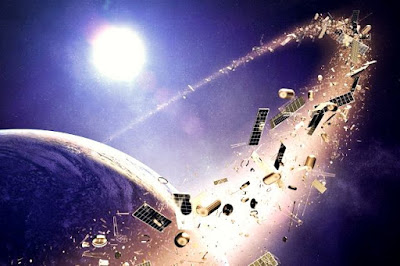People may not always realise how much we rely on satellites orbiting our planet. Buckle up before i take you to the sky where we will find out about the satellites. The Question is HOW IMPORTANT THE SATELLITES ARE FOR US ? HOW DO THEY HELP ? Simply Satellite helps to send signals all over the world. Satellite has a very wide range of applications. Different Satellites have different types of jobs. Here are few i want to quote.
- Communication Satellites are functional through antennas. Today, cellular data and telecommunications are getting more and more popular. Ground stations send signals and the satellite antennas pick up those signals and send data back to Earth.
- Weather and Climate Satellites help in forecasting the weather.
- Earth observational Satellites help us monitoring important resources like Mineral exploration, the environment, forestry and ocean resources.
- Military also use satellites to stay powerful in saving secret data, spying and collecting information of Hostile territories.
- Television broadcasting is also a technological advancement which has made watching TV to be very easy and convenient.
- Navigational Satellites helps to track movements and very precise positions.
- Astronomy satellite observes celestial objects in the sky such as the stars, planets, natural satellites and other celestial bodies.
Now we can have an idea from this huge array of satellites list that In this Technological advancement the need of satellites is indispensable. As we move ahead with time the need of satellites is going to rise up even Further.
The first artificial satellite was the Sputnik 1, launched by erstwhile USSR in 1957. Since then, many countries have launched satellites, with more than 5,000 currently operating Satellites moving around the Earth. But the story doesn't end here. We are Just entering into the next stage of Technological revolution where Artificial Intelligence, Machine Learning, High Speed Connectivity are about to grow even further. Big Players like SpaceX and Amazon are getting ready to deploy thousand of satellites in the span of a decade. Which will drastically change the scenario what we see today. Although SpaceX Starlink holds the large chunk of these plans, together with OneWeb and Amazon’s Project Kuiper, also have revealed the ambition to launch as many as 40,000 satellites in the coming decade
As the number of Satellites Increase in the Orbit there is always a chance of collision between the spacecrafts. This adds Significant risk to the Satellites as well as Any Space Mission or Experiments going on. Some computer simulations display the volume of atmospheric debris that has reached a tipping point, with enough now in orbit to continually collide and produce further debris, thus increasing the likelihood of satellite failures.
Space debris is a problem for astronauts too. As there are now over a million objects larger than an inch, all whipping around the planet at about 30,000 kmph. At that speed, the impact of a tiny particle would also be devastating. Space debris has the constant ability to change the functions and movement of the spacecraft. This turns into the real-world expenses, as space satellite operators alert about possible crashes.
There is 2 Ways How the Debris are made. As the Satellites die up there it just go out of it's trajectory and move around the space. Also as we know it's very high speed up there and out of its own route, chances are there it will crash with other satellites or anything celestial objects, which results the scattering smaller bits and pieces lost to space including machine parts that flake away from the outsides of devices, nuts and bolts.
In Second way, We the humans do some experiment which results to create more waste in the space. If you remember Last year India had conducted Anti-Satellite Missile Test, which is also known as MISSION SHAKTI. In the Process of that, you have to destroy one of your satellite in the space and that caused the Debris in the Space.
Presently, space debris does not raise a major risk to our space research. The main threat it faces is to the other orbiting satellites. But in Future as Tech Giants are planning to make mega constellations, the web of satellites covering around the earth, could potentially make a problematic scenario if we don't handle the maneuver optimally.
There are couple of ways too by which we can mitigate the junk problem. One of the way is by clearing dead satellites from orbit and yanking them back to the atmosphere, it will burn by the drag resistance while entering into the atmosphere. In this Process we need a Huge Net with magnets, which will help to grab the floating satellite. But one of the biggest Drawback in this case is it works only for the big satellites. You can't catch small debris by the help of net. There is another way by which you can collect the satellites in the space and send them to the sun, eventually they will be destroyed on there way to the sun. But Both the options will make a big dent in the pockets of the company. For now these are not much feasible.
Earth's orbit allows us to study our earth, moon, other planets in our galaxy, space exploration, exoplanets and much more mysteries which is yet to be unfold. It is crucial that we use it sustainably, allowing future generations to benefit from it as well.
So that's all for today. We will meet again soon.
BYE BYE....
BY MO MEMENTO
FROM TEAM VERRYONEL










2 Comments
really informative 👍👏
ReplyDeleteGood information 👍👍
ReplyDelete